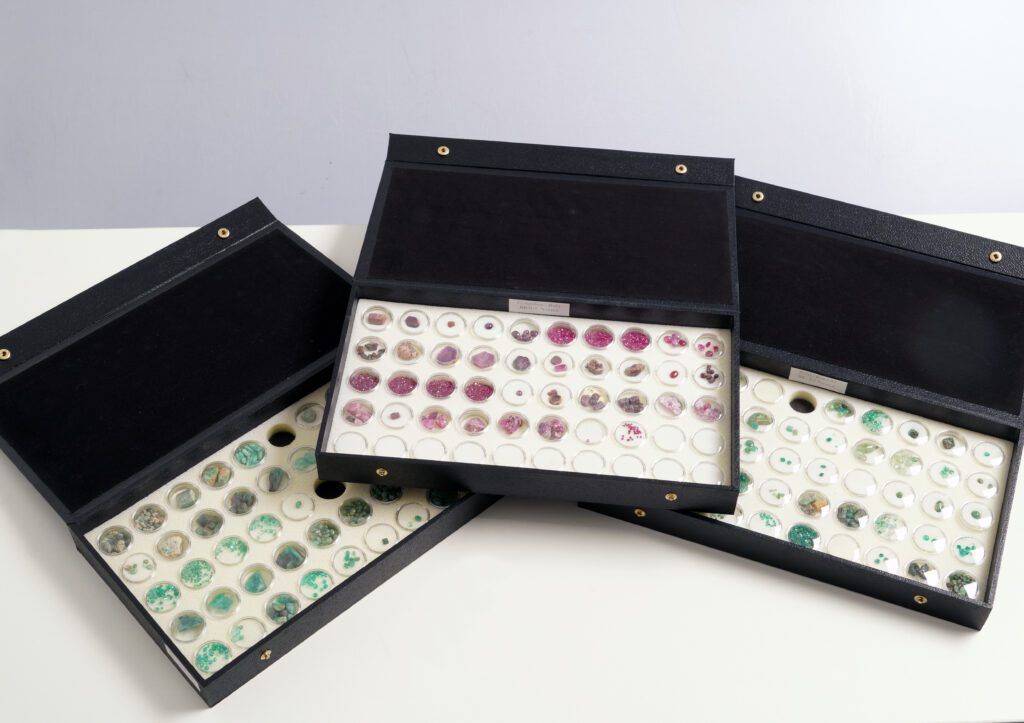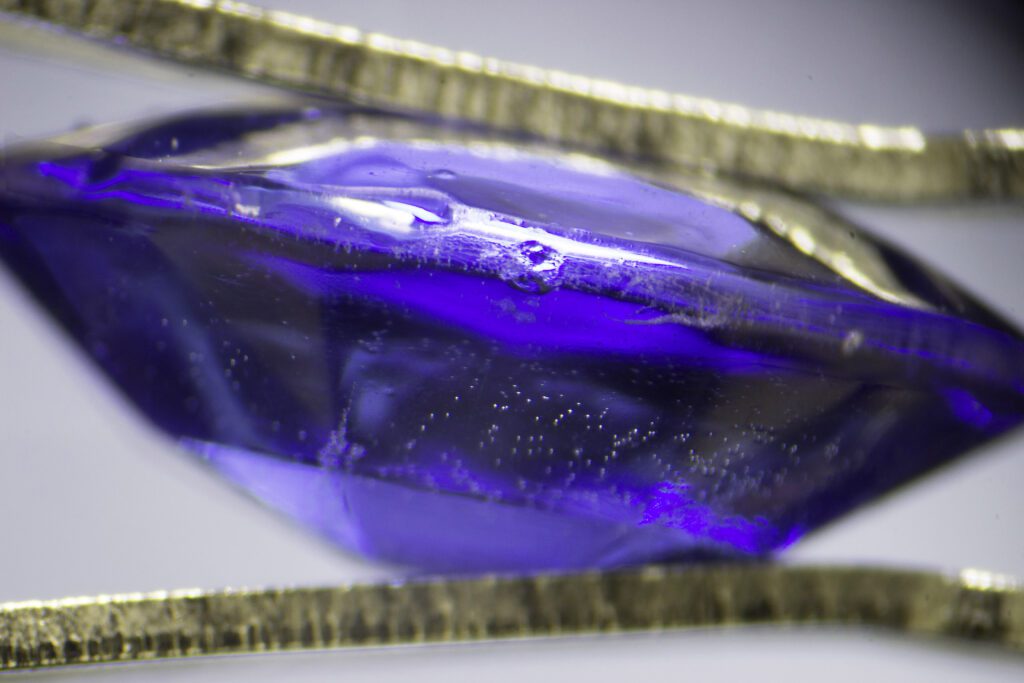The art and science of gemmology is a nuanced field that can lead to a fulfilling career. Gem-A tutor Pat Daly considers why gemmology matters, both as a topic of study and discussion and as a tool for commercial gain.
Gemstones are exceptional products of the natural world which stand out from other materials by virtue of their beauty, durability and rarity. They are items of commerce and, consequently, have a financial value above ordinary products of their kind. Most pieces of corundum and beryl, for example, are easily obtained and inexpensive, but fine examples of their gem varieties, rubies, sapphires and emeralds are rare and valuable.
Gemmology is the study of these materials, their discovery, fashioning, recognition, the ways in which they are incorporated into jewellery and the history of their use through thousands of years. It is an essential subject for people who work in the jewellery trade since a high proportion of jewellery, and almost all expensive pieces contain gemstones.
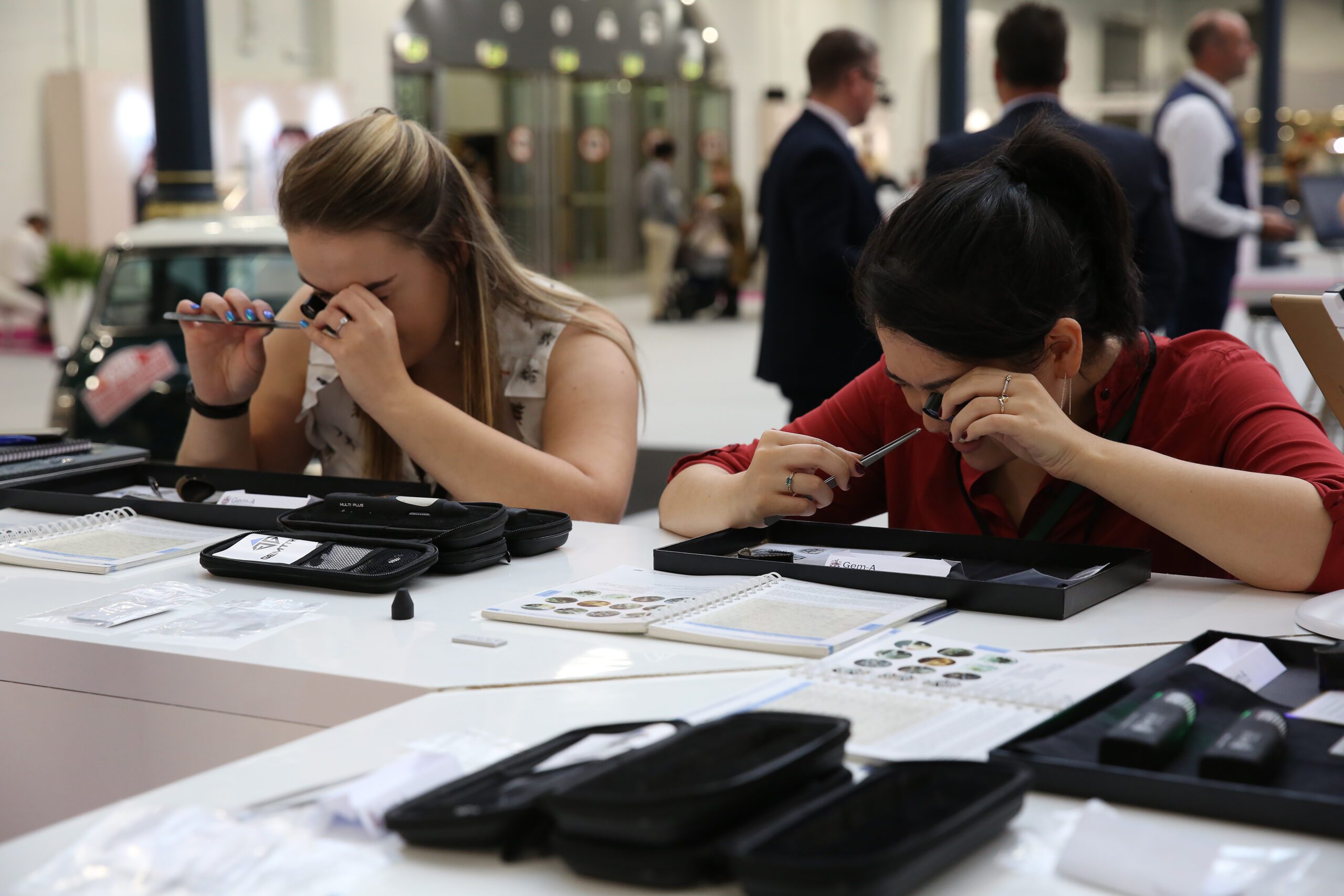

Using a loupe and tweezers to assess gemstones under magnification, from the Gem-A Archives.
For those who choose to study gemmology, there are some immediate practical benefits. They are trained to inspect gemstones carefully, noting features of their quality and any commercially significant faults they may show, such as scratching or breakage, visibly uneven colouring and poor cutting, which may affect their value. It enables them to offer sensible advice to clients, such as the suitability of gem varieties for different purposes. They may draw attention to the vulnerability of soft and brittle stones in engagement rings and other pieces intended to be used continuously, for example.
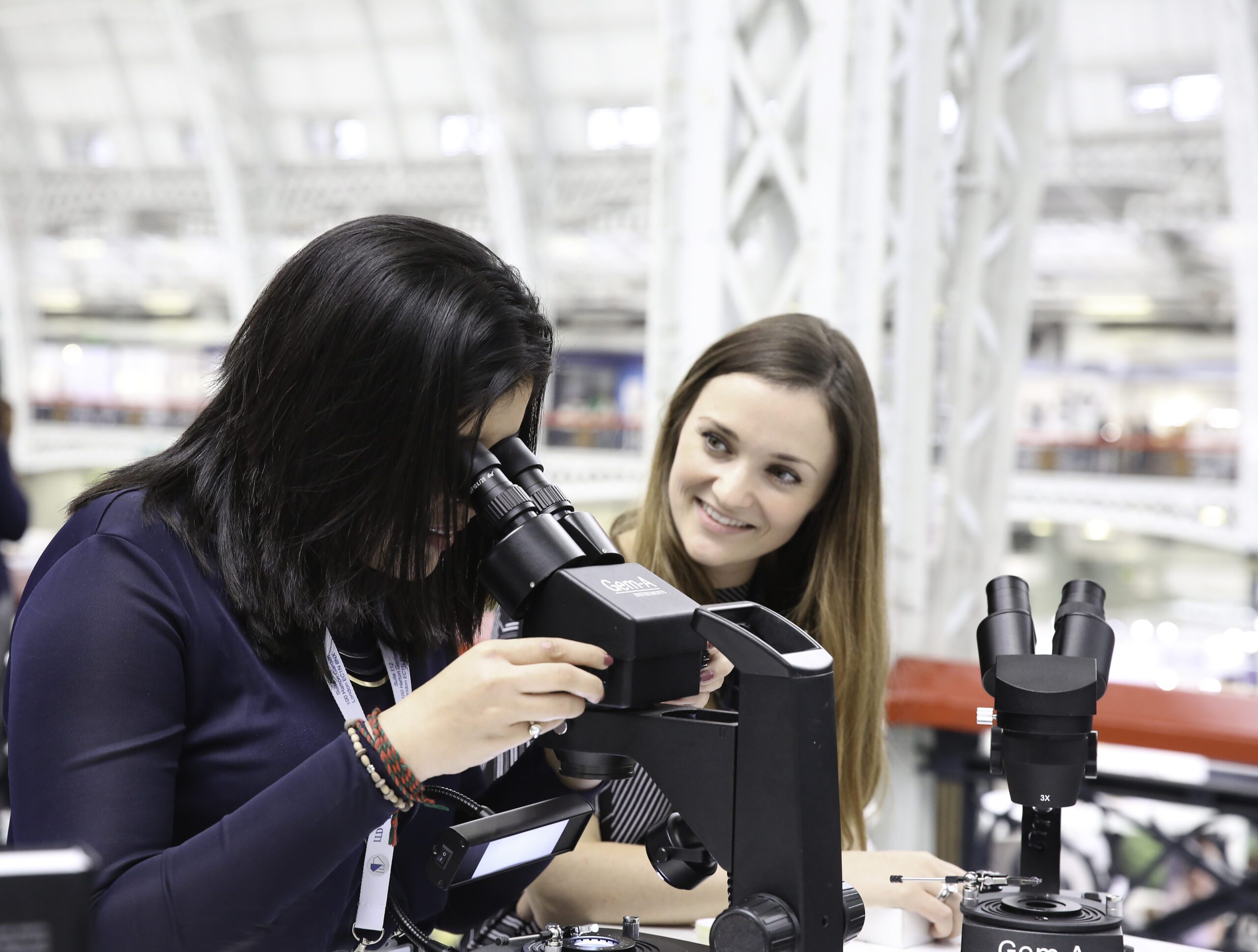

Identifying gem materials under the microscope. Photo from the Gem-A Archives.
The identification of gem materials, based on close observation and the straightforward application of scientific principles, enables gemmologists to avoid expensive errors while taking advantages of trading opportunities. It requires a detailed knowledge of the optical and other physical properties of the main range of gemstones; those which are seen most often in the gem and jewellery trades, and the skills which are developed may be extended to rarer gems, some of which are of most interest to collectors.
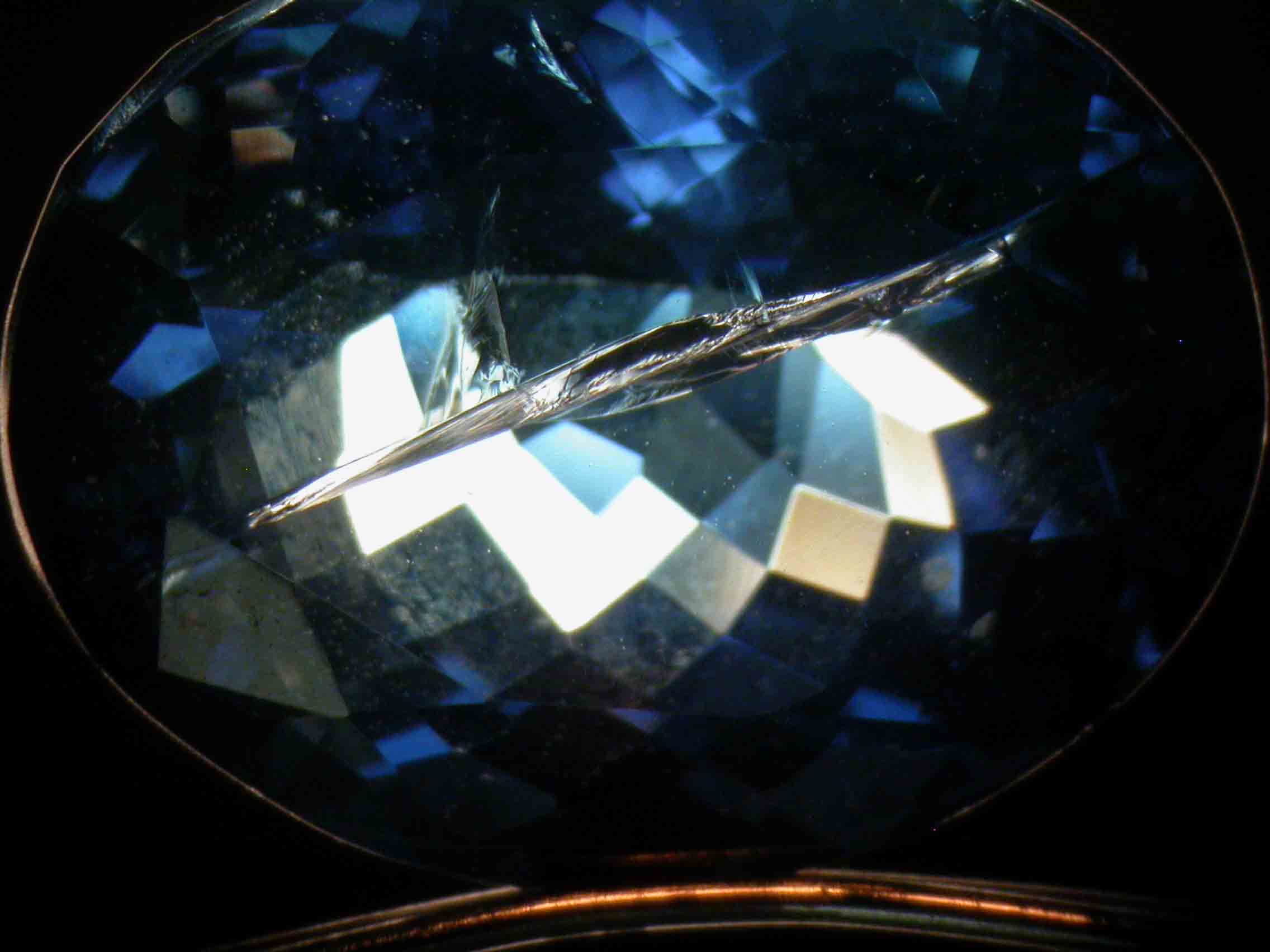

A fracture in tanzanite caused by an ultrasonic clear, photographed by Pat Daly.
Correct identification is essential in business, whether that involves buying, stock control, selling or appraisal for jewellery valuation, for museum curation, so that pieces on display are labelled accurately, and for auction descriptions, so that prospective buyers have a clear idea of what they are bidding for.


Yellow beryl from Madagascar, photographed by Henry Mesa.
Gemmology involves more than the routine confirmation of common gem species and varieties, however. Synthetic stones have been sold since the late 19th century and treatments to natural materials have been carried out for thousands of years. Through time, and especially during the late 20th and the 21st centuries, methods of production and enhancement have become more sophisticated and harder to recognise. Previously unknown gem varieties of established mineral species have been discovered and, occasionally, gems belonging to new minerals species. It is unlikely that these advances will stop, or even slowdown in the future. Gemmologists must keep up to date, as far as possible, with these changes, which means that their knowledge of gems will never be complete, or their interest fail for lack of variety.
Gemstones and jewellery also give insights to the past. They were valued during the lives of their owners, so many were preserved in burials or inherited collections, and many are durable, showing few important changes since they were made. They are, therefore, useful for tracing prehistoric trade routes and connections between geographic regions, besides giving insights into cultural, artistic and technological developments in different societies.
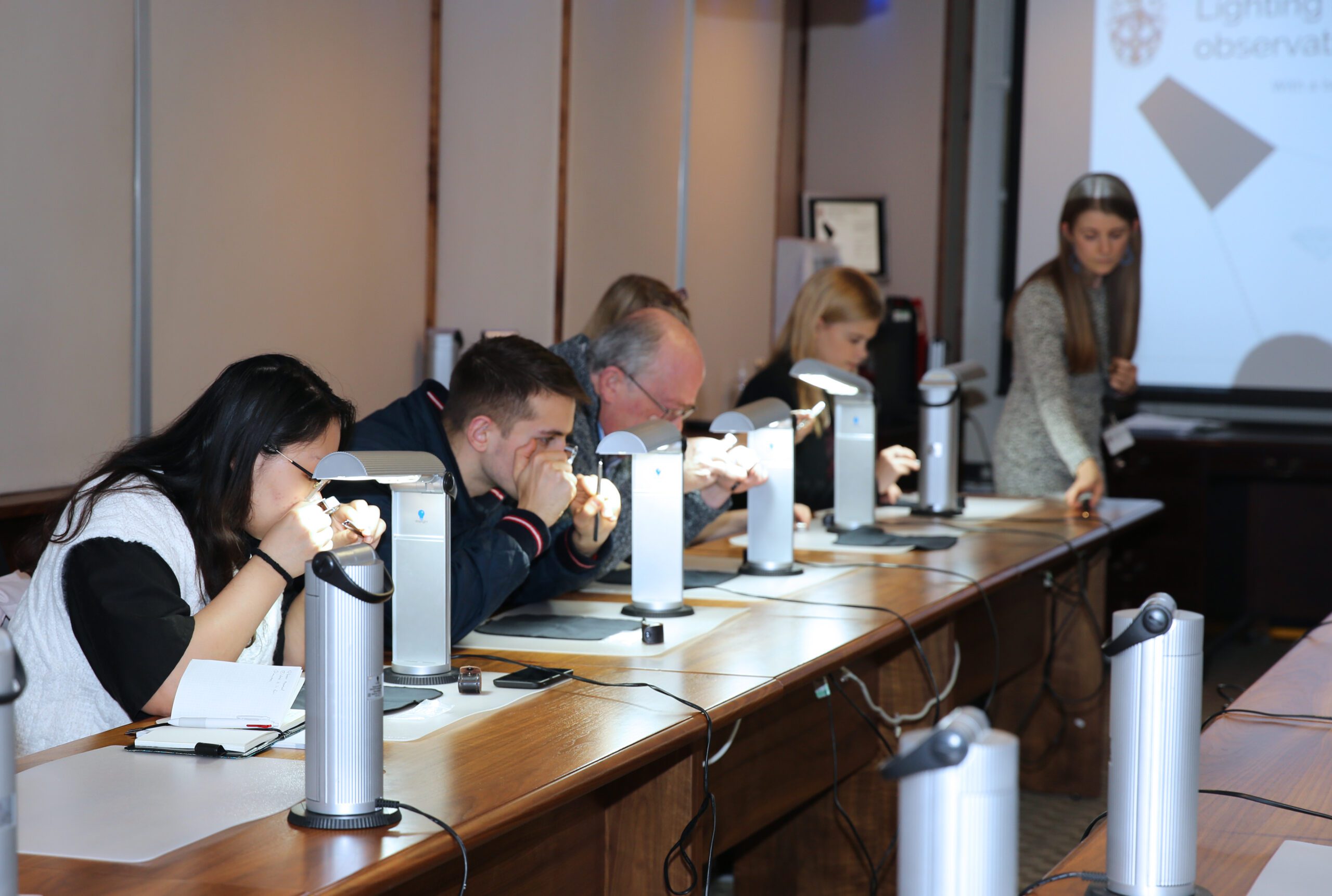

Studying gemmology at Gem-A opens doors to a fulfilling career. Photo from the Gem-A Archives.
Gemmology draws on other sciences, such as chemistry, crystallography, physics and biology. It is not hard for people who have not studied these subjects deeply to learn enough to understand the workings of instruments used for identification or the physical properties which they exploit. It does expand the range of instruments which can be used for gemmological purposes, though some are too expensive for everyday work and are found mostly in gemmological laboratories and university departments.


Sorting gemstones by size, from the Gem-A Archives.
Laboratories have the time and the equipment to investigate gemstones in more detail than is possible for people whose principal business is trading. Gemmologists who work in them must address problems which are too difficult to be solved by routine testing. These include identifying newer types of synthetic stones and treatments, and offering informed opinions on the localities from which some important stones were mined. They involve research, the collection of stones from known localities, and information which can be used to construct extensive databases to aid in reaching evidence-based, reliable conclusions.


The tools of the gemmologist’s trade available at Gem-A Instruments.
Most gem materials are minerals or rocks, which are the province of geologists. A knowledge of geology is useful because the origins of gemstones affect their chemistries, properties and the inclusions which they might contain. They form in geological settings which determine the chemical conditions, temperatures and pressures at which they grow. Changes in these conditions may result in partial solution of crystals, sometimes alternating with periods of growth to create complex histories which may be recognized by advanced instruments. Other minerals in the rocks, and the fluids which surround them, may be trapped within gem quality crystals. Synthetic stones grow under different conditions and their chemistries, growth histories and inclusions are different. Inclusions are modified by most treatments, which can be recognized by the changes which have occurred.
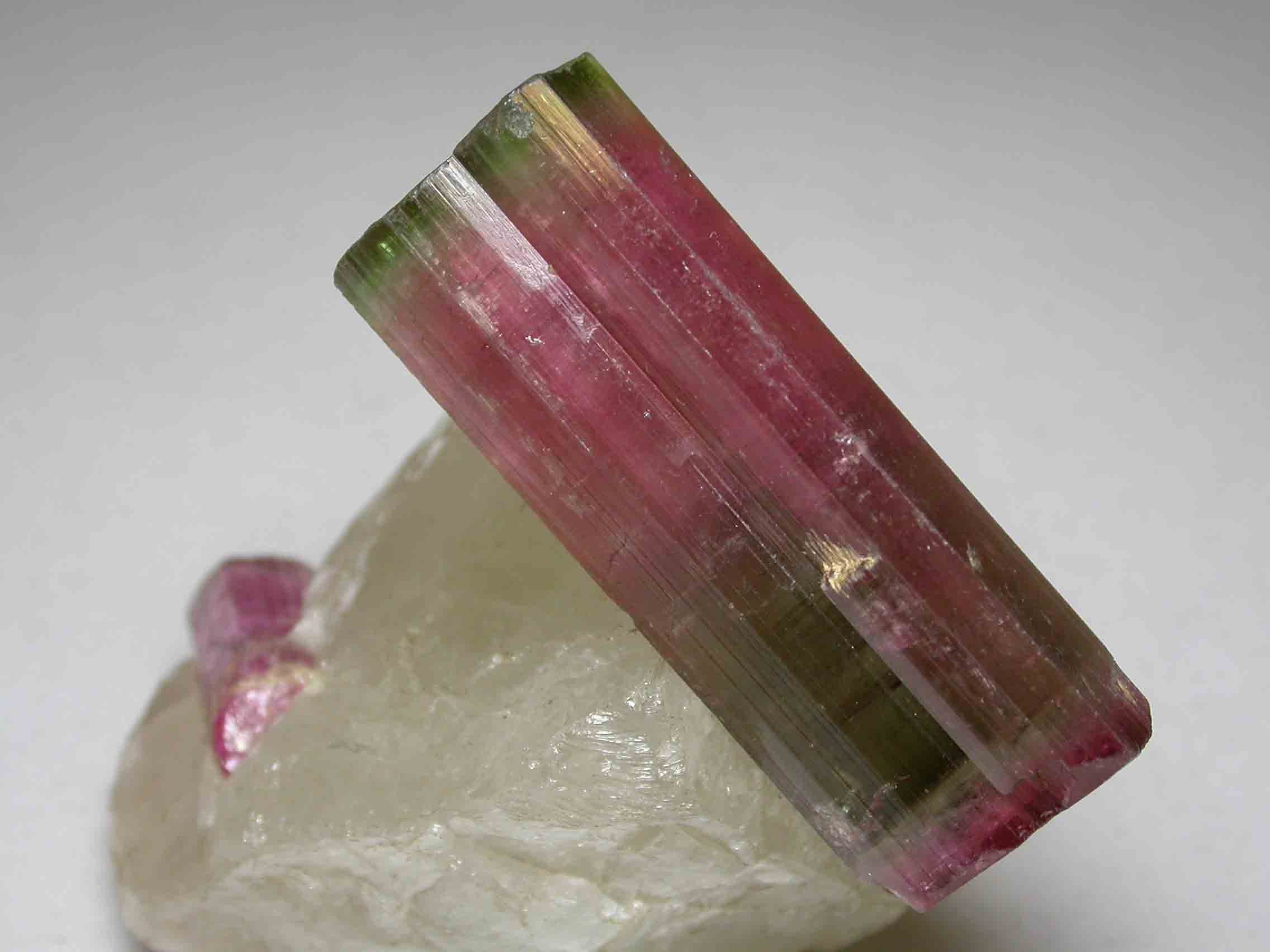

Watermelon tourmaline crystal photographed by Pat Daly.
The close relationship between gemmology and geology means that ideas and information flow in both directions. One mineral, taaffeite, was first identified as a faceted stone, but diamond is the material which contributes most to geological studies. Gem quality diamonds grow in earth’s mantle and are rare at the surface. They can be studied in large numbers because so many have been graded and studied so that statistically significant trends can be calculated from detailed records kept by gemmological laboratories. Many advances in knowledge can be afforded because of the commercial value of gem diamonds justifies their expense, and gem sales fuel developments in the growth of synthetic diamonds, to the benefit of technology.
Gemmology provides a field of study which assists trade professionals to design, manufacture, sell and repair jewellery. It also offers opportunities to explore other aspects of the subject and its application to other arts and sciences.
Discover Gem-A courses to start your journey in gemmology, including GemIntro and the Gemmology Foundation.
Main image: Sample sets of coloured gemstones from the Gem-A Archives.

